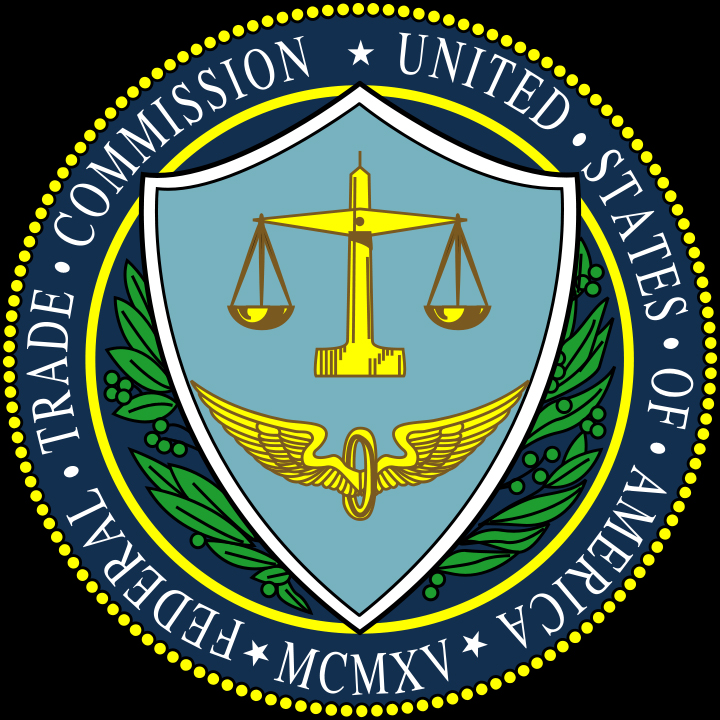
For the second time in just over a month, a federal judge has denied a Federal Trade Commission (FTC) motion to enjoin the merger of two hospital systems, this time the 13-hospital Advocate Health Care and the 4-hospital NorthShore University Health System, both located north of Chicago. The order denying the preliminary injunction will be followed by a detailed opinion outlining the judge’s grounds for the decision, which could be issued as early as this coming Friday. Yet the denial represents a significant development for the FTC, as the agency’s winning streak in hospital merger challenges is threatened once again.If the FTC decides to continue the fight, the Seventh Circuit Court of Appeals would join the Third Circuit Court of Appeals—currently considering the FTC’s appeal of a Pennsylvania federal judge’s denial of its request to block the merger of Hershey Medical Center and Pinnacle HealthCare—in taking up what are likely similar questions related to market definition and the relevance and impact of health care reform when considering parties’ efficiencies arguments. For providers watching these proceedings with an eye on how they may affect the antitrust risk profiles of their own merger or affiliation strategies, this summer is shaping up to be a momentous one, with an as-yet unresolved FTC merger challenge in West Virginia also looming in the background.1
In December 2015, the FTC issued an administrative complaint, alleging that the merger of Advocate and NorthShore would violate both the Clayton Act and FTC Act by reducing competition for general acute care services sold to commercial payors in a putative relevant market of the suburbs north of Chicago. Within days, the FTC and the Illinois Attorney General filed a complaint in federal district court in the Northern District of Illinois and moved for a preliminary injunction to block the merger pending the outcome of the administrative proceeding. During a six-day, trial-like hearing, the hospitals and the FTC put on several expert and fact witnesses, with the FTC bearing the burden of demonstrating that it was likely to succeed on the merits of its administrative challenge and that such a challenge is in the public interest.
District Judge Jorge Alonso’s Order of June 14 states that the FTC did not carry this burden. Once the public version of the court’s more detailed opinion is released, we will have greater insight into Judge Alonso’s analysis of the evidence and the arguments made by both sides in the case:
Relevant Market Definition: The FTC argued that the northern Chicago suburbs (northern Cook County and southern Lake County) comprised a relevant geographic market, with the relevant service being general acute care services. The systems argued that the FTC had “gerrymandered” the relevant geographic market in a way that excluded several competitor hospitals, and also improperly excluded outpatient services from the relevant product market. The judge’s detailed opinion should reveal which method of market definition he favored, and whether or not he rejected the FTC’s argument that the market for general acute care is highly local, as the district judge in the FTC v. Hershey Medical Center case did.
Post-Merger Pricing: The FTC argued that as the largest health system in northern Cook County and southern Lake County, the merged system would have increased leverage in rate negotiations with payors, who would need the combined system in order to compose a viable network to offer to employers. The hospital systems disputed that the transaction would result in the merged system being able to raise rates anticompetitively as alleged by the FTC, arguing that competition among hospitals in the broader Chicago area would keep prices in check. As in the Hershey Medical Center matter, the judge’s perceptions as to where patients in the northern Chicago suburbs are willing to seek care—locally, or elsewhere in the greater Chicago area—will likely influence his decision.
Procompetitive Aspects of the Merger: The hospital systems identified several procompetitive efficiency claims that they argued were likely to result only from the merger—including their ability to offer a new, lower-cost, narrow-network insurance product to consumers. The hospital systems claimed that the merger would enable them to engage in the kind of innovation that health care reform demands. The FTC, as it has done in all three pending hospital challenges, categorically dismissed the efficiencies claims as being speculative and not merger-specific. Whether Judge Alonso found the efficiencies arguments compelling, or whether they played any role at all in his decision, will be one of the most interesting parts of the detailed opinion. Although efficiencies did not play a major role in the actual analysis in the Hershey Medical Center decision, the judge’s consideration of the “equitable” aspects of the efficiencies arguments in that case gave rise to some pointed language directed at the FTC about the agency’s perception of the post-reform health care landscape.
___________________________
1 Foley & Lardner LLP is counsel of record in FTC v. Cabell Huntington Hospital, FTC Docket No. 9366.
___________________________
Legal News is part of our ongoing commitment to providing up-to-the-minute information about pressing concerns or industry issues affecting our clients and our colleagues. If you have any questions about this update or would like to discuss this topic further, please contact your Foley attorney or the following:
Attorney contacts/authors:
Holden Brooks
Milwaukee, WI
414.297.5711
[email protected]
Brett Ludwig
Milwaukee, WI
414.297.5524
[email protected]
Alan Rutenberg
Washington, DC
202.672.5491
[email protected]
David Simon
Milwaukee, WI
414.297.5519
[email protected]
In December 2015, the FTC issued an administrative complaint, alleging that the merger of Advocate and NorthShore would violate both the Clayton Act and FTC Act by reducing competition for general acute care services sold to commercial payors in a putative relevant market of the suburbs north of Chicago. Within days, the FTC and the Illinois Attorney General filed a complaint in federal district court in the Northern District of Illinois and moved for a preliminary injunction to block the merger pending the outcome of the administrative proceeding. During a six-day, trial-like hearing, the hospitals and the FTC put on several expert and fact witnesses, with the FTC bearing the burden of demonstrating that it was likely to succeed on the merits of its administrative challenge and that such a challenge is in the public interest.
District Judge Jorge Alonso’s Order of June 14 states that the FTC did not carry this burden. Once the public version of the court’s more detailed opinion is released, we will have greater insight into Judge Alonso’s analysis of the evidence and the arguments made by both sides in the case:
Relevant Market Definition: The FTC argued that the northern Chicago suburbs (northern Cook County and southern Lake County) comprised a relevant geographic market, with the relevant service being general acute care services. The systems argued that the FTC had “gerrymandered” the relevant geographic market in a way that excluded several competitor hospitals, and also improperly excluded outpatient services from the relevant product market. The judge’s detailed opinion should reveal which method of market definition he favored, and whether or not he rejected the FTC’s argument that the market for general acute care is highly local, as the district judge in the FTC v. Hershey Medical Center case did.
Post-Merger Pricing: The FTC argued that as the largest health system in northern Cook County and southern Lake County, the merged system would have increased leverage in rate negotiations with payors, who would need the combined system in order to compose a viable network to offer to employers. The hospital systems disputed that the transaction would result in the merged system being able to raise rates anticompetitively as alleged by the FTC, arguing that competition among hospitals in the broader Chicago area would keep prices in check. As in the Hershey Medical Center matter, the judge’s perceptions as to where patients in the northern Chicago suburbs are willing to seek care—locally, or elsewhere in the greater Chicago area—will likely influence his decision.
Procompetitive Aspects of the Merger: The hospital systems identified several procompetitive efficiency claims that they argued were likely to result only from the merger—including their ability to offer a new, lower-cost, narrow-network insurance product to consumers. The hospital systems claimed that the merger would enable them to engage in the kind of innovation that health care reform demands. The FTC, as it has done in all three pending hospital challenges, categorically dismissed the efficiencies claims as being speculative and not merger-specific. Whether Judge Alonso found the efficiencies arguments compelling, or whether they played any role at all in his decision, will be one of the most interesting parts of the detailed opinion. Although efficiencies did not play a major role in the actual analysis in the Hershey Medical Center decision, the judge’s consideration of the “equitable” aspects of the efficiencies arguments in that case gave rise to some pointed language directed at the FTC about the agency’s perception of the post-reform health care landscape.
___________________________
1 Foley & Lardner LLP is counsel of record in FTC v. Cabell Huntington Hospital, FTC Docket No. 9366.
___________________________
Legal News is part of our ongoing commitment to providing up-to-the-minute information about pressing concerns or industry issues affecting our clients and our colleagues. If you have any questions about this update or would like to discuss this topic further, please contact your Foley attorney or the following:
Attorney contacts/authors:
Holden Brooks
Milwaukee, WI
414.297.5711
[email protected]
Brett Ludwig
Milwaukee, WI
414.297.5524
[email protected]
Alan Rutenberg
Washington, DC
202.672.5491
[email protected]
David Simon
Milwaukee, WI
414.297.5519
[email protected]
Author(s)
Related Insights
December 19, 2025
Health Care Law Today
Gender Affirming Care for Minors: CMS and HHS Propose Limits on “Sex Rejection Procedures” and Expanded Enforcement Pathways
On December 18, 2025, the U.S. Department of Health and Human Services (HHS) held a press conference focused on what is defined as “sex…
December 19, 2025
Foley Viewpoints
Prohibition to Prescription: What Trump’s Marijuana Executive Order Really Means
On December 18, 2025, President Donald Trump issued an Executive Order, Increasing Medical Marijuana and Cannabidiol Research, that…
December 18, 2025
Manufacturing Industry Advisor
Foley Automotive Update
Analysis by Julie Dautermann, Competitive Intelligence Analyst Foley is here to help you through all aspects of rethinking your long-term…

